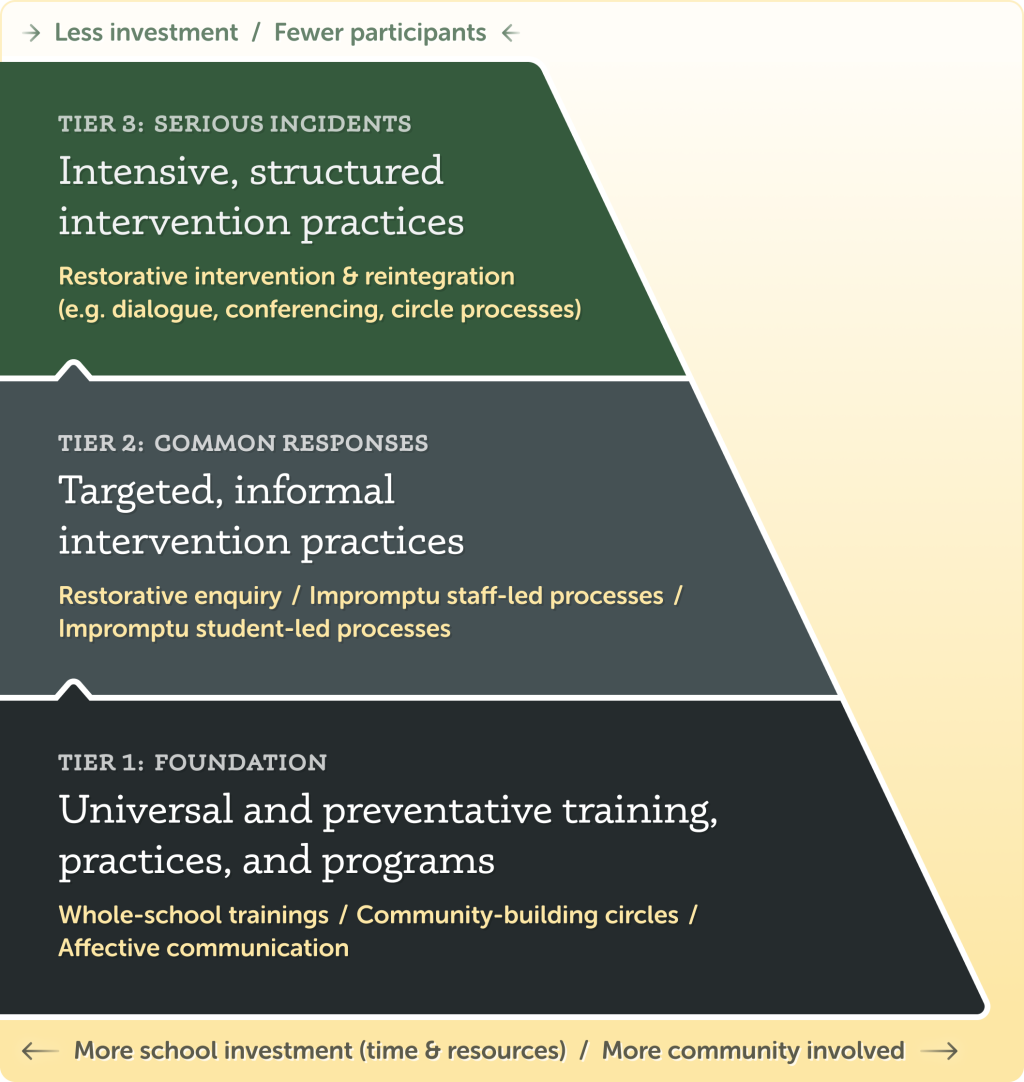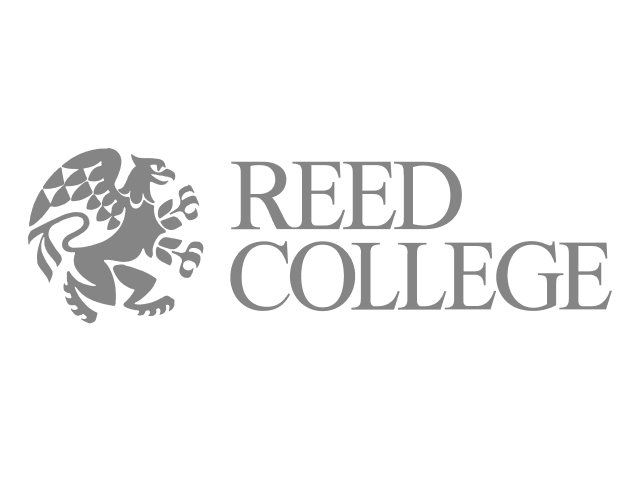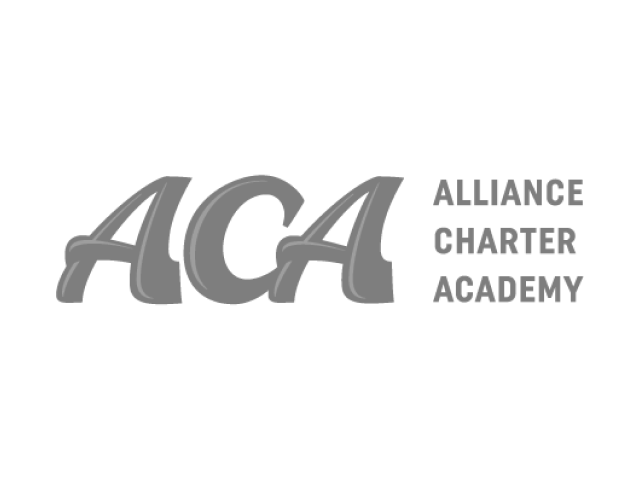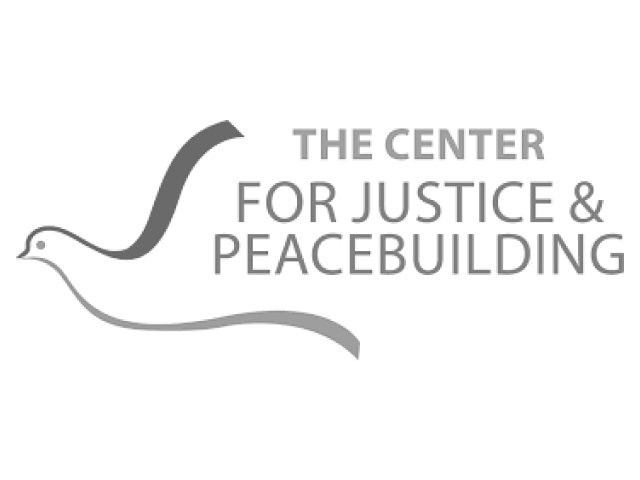Students, teachers, faculty, staff, and administrators thrive when they experience a sense of dignity and belonging at their school or district.
Based on this recognition, restorative approaches in educational settings seek to foster safe, respectful, and vibrant learning-communities while contending with disruptive or harmful behaviors and systems in ways that promote responsibility, equity, and learning. Restorative approaches are aligned with a comprehensive set of guiding principles that inform every-day community-building activities as well as more intensive interventions addressing serious misconduct. Research has demonstrated significant reductions in bullying, violence, drop-out rates, suspensions, disciplinary actions, and disproportionality – while cultivating more positive classroom environments and improved academic scores, among other benefits.
Implementing restorative approaches in schools and higher learning institutions requires a broad and holistic vision of change.
Taking a “whole school approach” means envisioning the change on three interconnected levels (or Tiers of Practice) as illustrated in the accompanying diagram. Just Outcomes partners with schools, school districts, and post-secondary institutions to create positive change which affects the lives of students, staff, faculty, and families alike. We provide the training, facilitation, coordination, and technical support required for large-scale change initiatives. And we work collaboratively to ensure that all who are affected by the change are invited to have a voice in the process.




